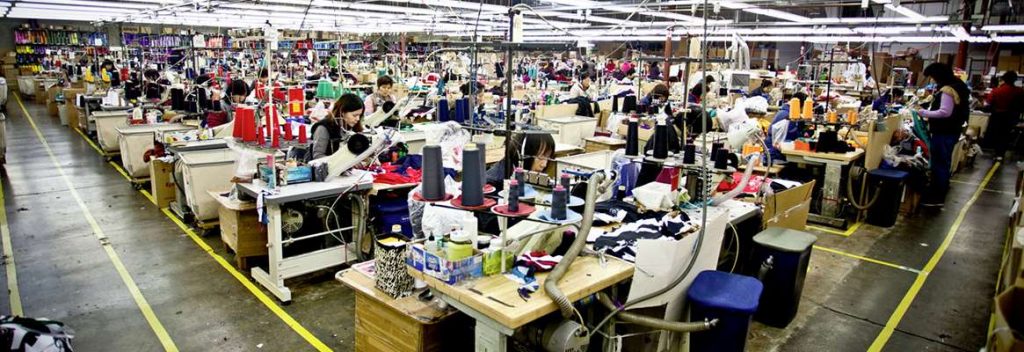By Akanimo Sampson
The International Labour Organisation (ILO) has welcomed the Call to Action by garment industry to work with governments to tackle the effects of the COVID-19 pandemic.
The industry’s employer, worker organisations, leading brands and retailers have expressed willingness to work with governments and financial institutions to tackle the devastating economic disruption and threat to livelihoods caused by the corona virus pandemic.
The call to action is bringing together key stakeholders in the industry in the wake of unprecedented social and economic disruption that has resulted in the closure of factories and retail stores, illness, and widespread loss of income and unemployment.
This initiative was announced in a joint statement by the International Organisation of Employers (IOE), the International Trade Union Confederation (ITUC), and IndustriAll Global Union.
It aims to mobilise sufficient funding to enable manufacturers to ensure business continuity, payment of wages, as well as income-support and job retention schemes to protect garment workers’ income, health and employment.
“ILO is deeply concerned by the threat posed by COVID-19 to millions of jobs in the global garment industry. This is an unprecedented crisis that can only be solved through global solidarity. The priority must be to sustain businesses and protect workers”, says its Director-General, Guy Ryder.
“At the heart of this, is effective social dialogue between governments, workers’ and employers’ organisations, and we urge all actors to heed this call and take joint action that will help us avert catastrophe for the industry.”
Employers, workers, retailers and major brands involved in the collaboration will form an international working group – convened by the ILO – to implement measures to limit the damage caused by the pandemic to enterprises and livelihoods.
The working group has also committed to support the development and expansion of social protection systems for workers and employers in the garment industry as part of the recovery.
IOE Secretary-General, Roberto Suárez Santos, says “the economic impact of the COVID-19 pandemic on this critical industry requires a global response.
“IOE joins this call for action with the aim of supporting business continuity as well as the livelihoods of workers in the garment industry during this disruptive period.
“This is a voluntary initiative that focuses on mobilising collective action. It is not aiming to disregard stakeholders, companies and organization that might not be able to join.”
ITUC General-Secretary, Sharan Burrow, underlines the need for cooperation. “We cannot afford the human and economic devastation of the collapse of our global supply chains and millions more in developing economies thrown back into poverty.
“Jobs, incomes and social protection are the dividends of business continuity and this statement calls for emergency funds and social protection for workers to guarantee industry survival in the poorest of our countries. Leadership and cooperation from all stakeholders are vital to realize a future based on resilience and decent work.”
Meanwhile, many rural communities in Chad are ‘disconnected’ from critical COVID-19 sensitisation messages.
Why? The communities are ‘excluded’ from radio and cellphone coverage thus, leaving them out of critical COVID-19 messages.
Chad, a landlocked country in Central Africa, has more than 70 per cent of its population in rural areas, and with limited access to digital information channels.
To overcome this challenge and strengthen health security at local levels, the International Organisation for Migration (IOM) in Chad recently partnered with local traditional town troubadours to ensure that the most rural communities across the country are informed on COVID-19 transmission and preventive measures.
Over 80 troubadours were identified through IOM networks in eight regions, where IOM already has a presence.
They were trained and equipped by IOM with key messages to share with communities in local languages.
Town troubadours traditionally move with donkeys, horses or camels from community to community sharing information related to community news.
IOM Chad Chief of Mission, Anne Kathrin Schaefer, says “in various rural communities in Chad, town troubadours are seen as information custodians. As such, they can play an important role in disseminating key information in hard-to-reach areas.’’
One town crier from Baga-Sola, a town on the shore of Lake Chad in Western Chad explains, “town criers and troubadours are part of the life of this community.
“Nothing happens here without me being informed and me informing others. Many women do not leave their houses during the day but when they hear me coming, they rush out to listen to me.”
The man marches through Baga-Sola, a long caftan robe billowing in the dusty wind. Swinging matching megaphones he calls out to the dun-colored structures, almost like in Roman times, with the Chadian equivalent of Lend me your ears.
“Corona virus is a dangerous disease. We heard that the pandemic affected the world but us. Today, the disease is here. We have to have good hygiene habits and wash our hands, not greet each other, and if you go to the toilet, wash your hands with soap”, he chants in the Kanembou dialect.
“If you’re home, make sure to show the good habits to your kids. Before and after eating, wash your hands with soap.”
Since the outbreak of the COVID-19, 33 cases have been confirmed in Chad with no fatalities.
In addition to risk communication and community engagement, IOM supports Chad’s national response to the disease through the management and equipment of Points of entry (POE), protection and assistance to migrants in transit, and the distribution of NFI kits which include hygiene items such as water and soap internally displaced persons in the conflict-stricken Lake Region.

